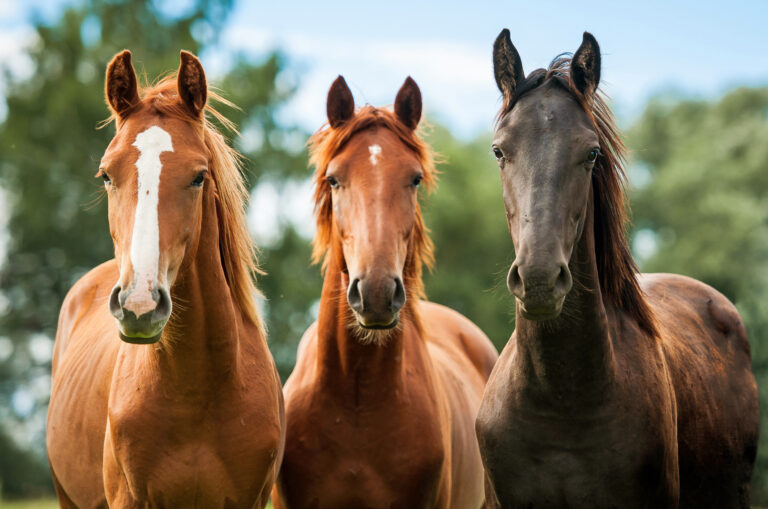The University of KentuckyGluck Equine Research Center has developed a novel test to determine the likelihood of a long-term equine arteritis virus (EAV) carrier state in stallions.
Gluck Center faculty members Professor Udeni Balasuriya, Professor Ernie Bailey and Peter Timoney, Frederick Van Lennep Chair in Equine Veterinary Science, within the College of Agriculture, Food and Environment, developed the test to determine the genetic basis of a specific haplotype, a group of genes inherited from one parent. Their work was funded by a U.S. Department of Agriculture-Agriculture and Food Research Initiative grant.
Outbreaks of equine viral arteritis, which is caused by the virus, may result in significant economic losses to the equine industry due to pregnancy loss in mares, death in young foals and establishment of the carrier state in stallions. The virus is maintained in the equine population between breeding seasons by persisting in the carrier stallion.
“It is gratifying to see how Drs. Balasuriya and Bailey’s work has led not only to a better understanding of the nature of persistence of this important disease, but also to a test that can help identify those animals at risk for persistent infection,” said David Horohov, chair of the Department of Veterinary Science, director of the Gluck Equine Research Center and Jes E. and Clementine M. Schlaikjer Endowed Chair.
Stallions possessing the susceptible haplotype, consisting of four specific nucleotide changes in the CXCL16 gene, are more likely to remain long-term carriers of the virus in their reproductive tract than horses that possess the resistant haplotype. Stallions that are resistant initially shed the virus in their semen following infection, but in most cases cleared the virus from the reproductive tract within months following infection. Stallions possessing even one copy of the susceptible haplotype are at greater risk for becoming long-term shedders of EAV.
“Since surgical castration can be resorted to in stallions that are confirmed carriers of EAV, this test can help identify those horses that may spontaneously clear themselves of the virus, thus avoiding the loss of a valuable breeding animal,” said Kathryn Graves, director of the Genetic Testing at Gluck Laboratory.
In addition, the test indicates which horses have the susceptible haplotype and therefore are at higher risk for becoming carriers if infected with EAV. In these cases, the risk of infection and becoming a carrier can be prevented through vaccination and implementation of appropriate management practices.
It is important to emphasize that despite the availability of this test, all colts and stallions negative for antibodies to EAV should be vaccinated against EAV in accordance with the manufacturer’s recommendations, irrespective of their genetic makeup for the CXCL16 gene.
The new test is available at the Genetic Testing at Gluck Gluck’s genetic testing laboratory. The cost is $100, and the test can be done from a mane or tail sample. More information, including a submission form, is available at www2.ca.uky.edu/gluck/AGTRL.asp.
The mission of the Gluck Center, a UK Ag Equine program in the College of Agriculture, Food and Environment, is scientific discovery, education and dissemination of knowledge for the benefit of the health and well-being of horses. The Gluck Center faculty conducts equine research in seven targeted areas: genetics and genomics, infectious diseases, immunology, musculoskeletal science, parasitology, pharmacology/toxicology and reproductive health.For more information on the Gluck Center, visit www.ca.uky.edu/gluck.









